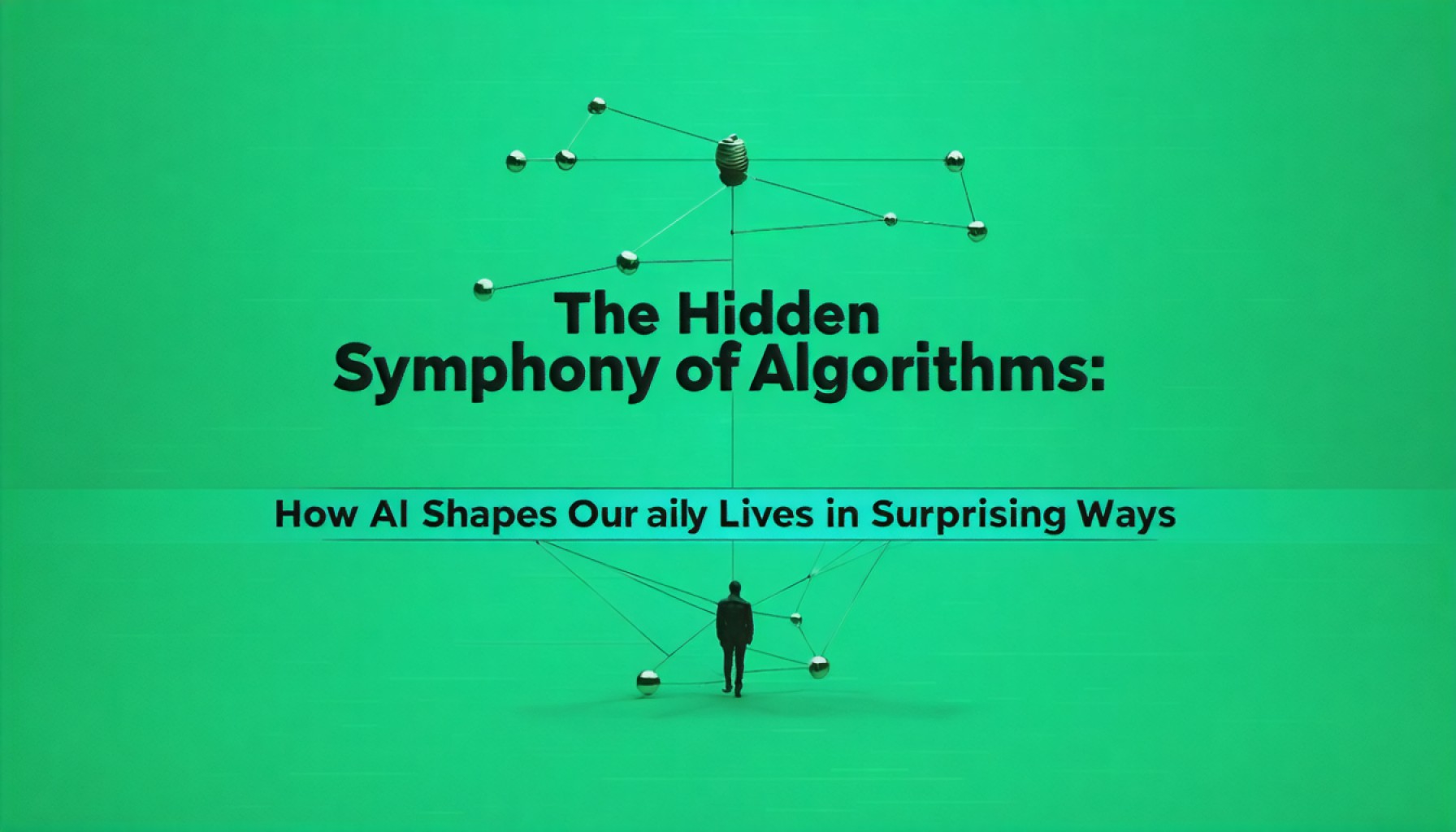- Algorithms and artificial intelligence (AI) discreetly shape our daily lives, making technology interactions seamless and impactful.
- AI is integral to applications from entertainment streaming to navigation apps, predicting user preferences and optimizing experiences.
- Data is the lifeblood of AI, processed rapidly to enable technologies like facial recognition and smart assistants.
- AI is transformative in immediate-need sectors like healthcare and finance, offering unprecedented efficiency and predictive capabilities.
- Ethical concerns about privacy, bias, and transparency arise as AI becomes more embedded in human activities.
- User awareness and education are crucial to ensure AI enhances rather than constrains human potential.
- The ongoing evolution of AI presents a dynamic relationship that requires informed and conscious interaction.
Algorithms weave through our lives like subtle orchestrators, shaping decisions, enhancing experiences, and even influencing emotions. These silent architects of the digital world build pathways that make our daily interactions with technology seamless yet profoundly impactful.
From flickers of entertainment to the critical software systems we rely on at work, artificial intelligence is no longer the stuff of science fiction; it’s the backbone of our modern existence. Picture an AI-powered streaming platform that knows your next binge before you do, or a navigation app that guides you on the least congested path while suggesting a coffee shop detour where a pre-ordered latte awaits—all these are the symphonies of algorithms working behind the scenes.
The invisible hand of AI is data: diverse, voluminous, and processed with lightning speed. When you unlock your smartphone with a glance or use your voice to command a smart speaker, you witness the culmination of millions of data point interpretations happening in real-time. It’s a testament to the rapid evolution of deep learning technologies, a branch of machine learning that mimics the neural pathways of the human brain, enabling computers to recognize patterns and make decisions with startling accuracy.
This unseen revolution has peaked in areas where immediacy is paramount. Consider healthcare, where AI-driven diagnostics provide doctors with insights previously unimaginable, or in finance, where algorithms predict market trends in microseconds, aiding investors in making informed decisions. AI is revolutionizing industries by making processes more efficient, outcomes more predictable, and possibilities virtually limitless.
Yet, as these algorithms become ever more entwined with human activity, they invite a host of ethical inquiries about privacy, bias, and accountability. The programming of algorithms—often shrouded in corporate secrecy—demands scrutiny to ensure fair play and transparency.
Every tap, swipe, or command leaves an indelible inkblot on the canvas of AI’s learning. As users, understanding the reach and capacity of these technologies empowers us to interact more consciously, knowing our choices feed back into this grand, intelligent design.
As we navigate this AI-enhanced world, the key takeaway is clear: Awareness and education must pace the innovation. By doing so, we keep the melody harmonious, ensuring these algorithms amplify human potential rather than constraining it. The dance with AI is just beginning, and we have the lead—let’s step boldly into this new frontier.
Unveiling the Secrets of Algorithms: How They Shape Our Digital World
Introduction
Algorithms are interwoven into the fabric of our daily lives, acting as silent orchestrators that enhance our experiences and influence our emotions. These digital architects facilitate seamless interactions with technology, be it a recommendation engine predicting our next binge-watch or a navigation app guiding us to a pre-ordered coffee. But there’s more beneath the surface, involving layers of data processing and ethical considerations that demand our attention.
The Pervasiveness of AI Algorithms
Real-World Use Cases
1. Healthcare: AI-driven diagnostic tools like IBM Watson Health analyze vast datasets for pattern recognition, enabling early disease detection that significantly impacts patient outcomes.
2. Finance: Algorithms in high-frequency trading platforms, such as those used by Renaissance Technologies, execute trades in microseconds, potentially yielding higher profits by predicting market trends with incredible speed (source: Bloomberg).
3. Retail: Personalized shopping experiences are crafted by AI algorithms analyzing customer data, as seen in platforms like Amazon that recommend products based on user behavior (source: CBC).
Features and Specifications
– Deep Learning Models: Utilize neural networks mimicking human brain pathways, improving accuracy in tasks like image and speech recognition.
– Natural Language Processing (NLP): Enhances smart assistants (e.g., Google’s Assistant, Amazon’s Alexa) to understand and execute user commands with greater precision (source: Forbes).
Pressing Questions and Insights
1. How Secure Are AI Algorithms?
AI systems are susceptible to vulnerabilities, including data breaches and adversarial attacks. Implementing robust encryption and continuous auditing can mitigate these risks (source: TechCrunch).
2. Are Algorithms Biased?
Bias in algorithms stems from skewed data or flawed model training, raising ethical concerns about fairness. Transparent methodologies and diverse datasets are essential in minimizing these biases (source: Scientific American).
Market Forecast and Industry Trends
The AI market is projected to grow exponentially, with investments expected to reach $500 billion by 2025. Dominant sectors include autonomous vehicles, cybersecurity, and conversational AI, driven by advancements in computing power and data availability (source: Gartner).
Pros and Cons Overview
– Pros:
– Enhanced efficiency and productivity across industries.
– Increased accessibility to data-driven insights.
– Cons:
– Ethical dilemmas surrounding privacy and data usage.
– Potential job displacement due to automation.
Actionable Recommendations
1. Stay Educated: Regularly engage with AI-related content to understand its implications and benefits.
2. Prioritize Privacy: Be mindful of sharing personal data, using privacy settings to control your digital footprint.
3. Demand Transparency: Advocate for transparency in AI systems, pushing companies to disclose algorithm decision-making processes.
Conclusion
As we continue our dance with AI, maintaining awareness and education are paramount to harness its potential safely and ethically. These algorithms, far from being mere toolsets, are the melodies that drive our digital evolution. By understanding and adapting to this new frontier, we stand to benefit profoundly from the possibilities it presents.
